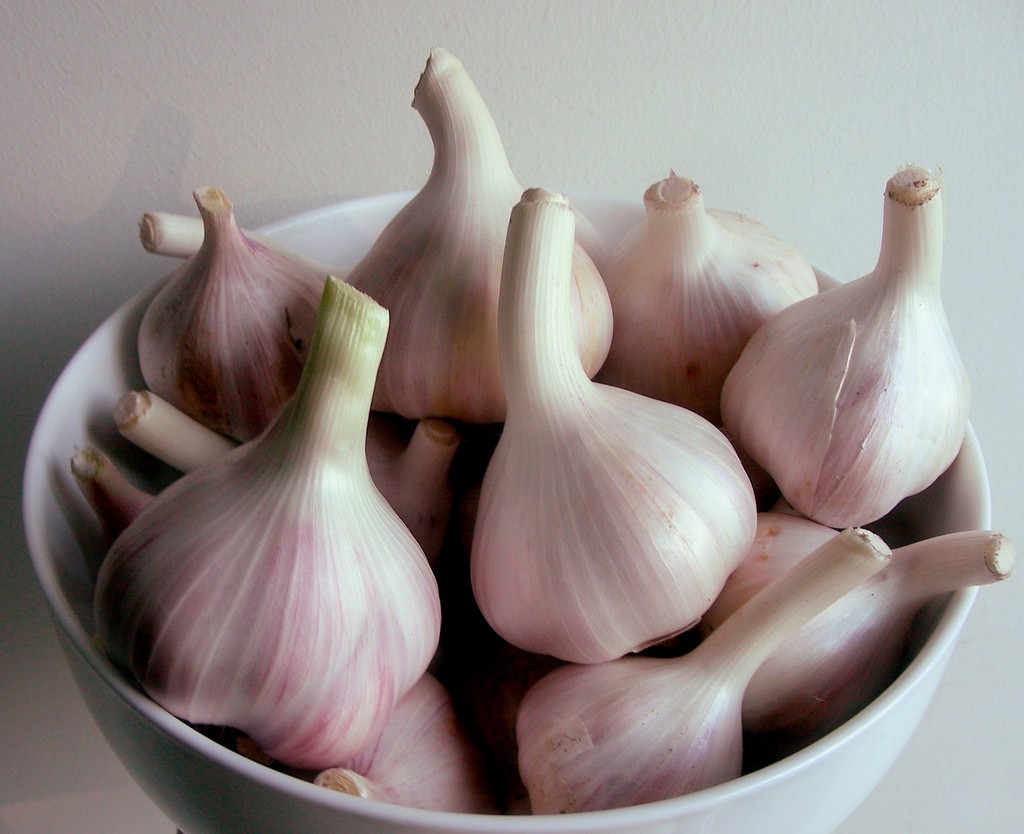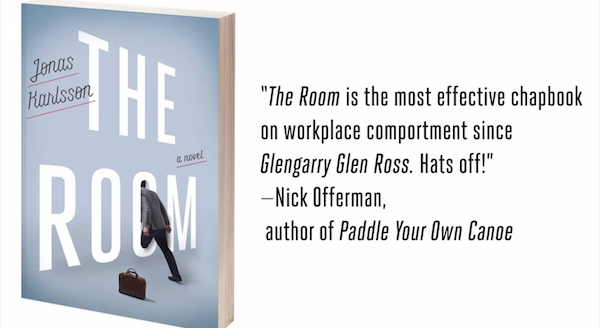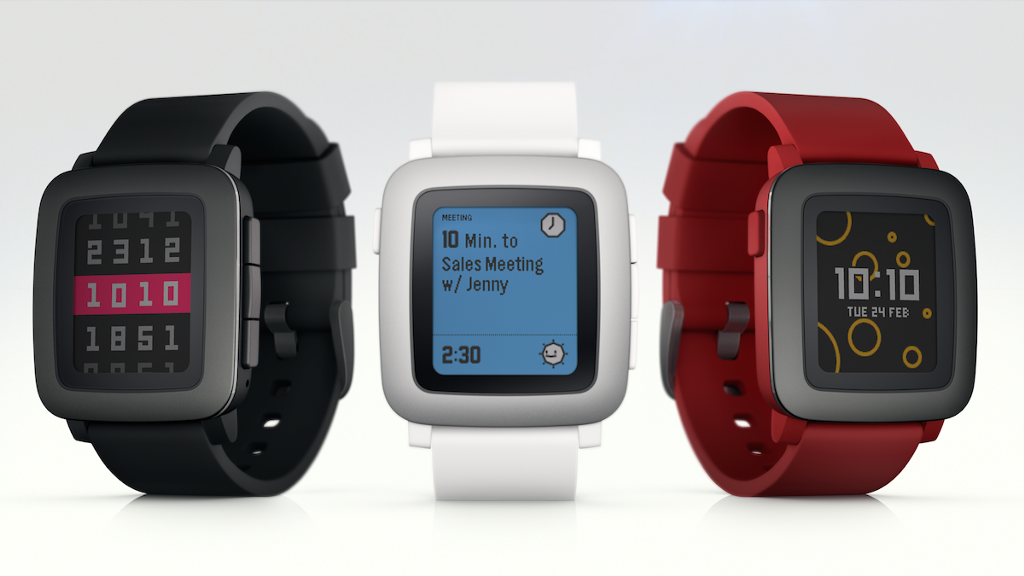Who's Ready For War?

Nearly three-quarters of Republicans now favor sending ground troops into combat against the Islamic State, according to a CBS News poll last week. And in Iowa and South Carolina, two early-voting states, Republicans said military action against the group was, alongside economic matters, the most important issue in the 2016 election, according to an NBC survey released last week.
This from a piece suggesting that the current roster of presidential contenders needs, “with the economy improving,” another issue “to distinguish themselves from Democrats.” So, as it stands, we will have a field of candidates looking for a new subject to talk about and an electorate that is happy to talk about at least one, that subject being war. This is not a small thing, that a significant number of Americans are already considering the w word. It’s really not that far under the surface — I was scrolling through my RSS feeds yesterday and landed on the New York Post’s page. Here is a sample of stories from the last two days alone:



Wow, Post, so thirsty! (For war.)
Maybe you understand, and talk about, how ISIS is frightening. Maybe you read about, and see, the things ISIS does and wonder what they mean and what should be done. But here is a reminder: There are millions of voting people who already believe they know what should be done, and they are ready for war. Look around! They are here. They might not be currently thinking let’s go to war. But at the suggestion of the right person, after the right news report, they would say sure, why not? LET’S HAVE ANOTHER WAR. This is their natural state.
The President has asked for authorization for his type of war, which he would suggest to us is not technically “war” but which nonetheless allows for the possibility of ground troops on top of already-occurring bombings intended to suppress ISIS, with the support of a majority of Americans. Congress is now charged with negotiating this proposal, and deciding which kind of war-not-war will be waged, how it will be described, and how it will be legally justified, which will matter much more if this war-not-war becomes an honest we’re-at-war war.
Congress returns to Washington this week after a 10-day break to confront the difficult business of how the United States should wage war against terrorist organizations such as the Islamic State.
The formal task is to write and approve an “authorization for the use of military force,” or AUMF, but the broader goal is to demonstrate to the world that there is unified, bipartisan support for U.S. military engagement against a new, more mystifying enemy than the ones the United States faced when Congress last approved similar resolutions, in 2001 and 2002.
Is this really what we’re going with, that ISIS is a “new, more mystifying enemy” and that “the ones” in “2001 and 2002” were clear and knowable? This is an odd interpretation of history! But it’s exactly the type of revisionism necessary to help quell the dissonance resulting from simultaneously ending recent wars out of mercy and fatigue and preparing to start a new one because it feels so right.
Eat the Garlic

Almost everything I cook begins the same way: Take out a head of garlic, separate the cloves, and begin peeling, trimming, and chopping. From there, ninety-five percent of the time, its job is to help accentuate the flavors of something else: vegetables, seafood, tofu, beans, pasta. Garlic is a key ingredient in the flavor bases for most world cuisines, and yet few people treat it as anything more than a spice, or an aromatic. That should change. Every recipe this week will destroy your breath and create a difficult predicament for your loved ones, who will be simultaneously impressed by your cooking and very turned off by your aromatics.
There are two main types of garlic: hard-neck and soft-neck. Hard-neck can typically only be found at farmers markets; like its name suggests, it has a long, hard stem, and is very expensive. It has fewer, but larger, cloves, and also has a slightly more intense, complex flavor. Soft-neck garlic is more common, more inexpensive, and more mild in flavor. Honestly, I tend to buy hard-neck garlic once in the springtime and think “huh tastes like garlic” and then go back to not spending like four dollars for a single head of garlic. (Oh, and there’s black garlic, which is a fermented garlic. It’s tasty but not a raw ingredient so we will ignore it today. Garlic scapes are the young necks of the hard-neck garlic variety, but they won’t be available for another few months so we’ll set them aside for another day.)
You should buy garlic by the head, which is the name for the entire bulb of garlic. The head contains several cloves, each wrapped in several layers of unbelievably irritating papery skin. When buying, give them a squeeze: the cloves should have no give at all, should be very firm and hard and have no brown spots on them. If they’re soft, they’ve gone bad. In terms of size, if you get a head with large cloves, you’ll be doing less peeling to get the same amount of garlic by weight.
I think people sometimes avoid garlic (and maybe cooking altogether!) because preparing it is sort of a pain. Here’s how to do it (garlic, anyway): Grab an entire head of garlic and hold it in both hands over the trash can. Using your thumbs, push the skin from the stem downwards; lots of the drier outer layers should fly off into the garbage. When it seems like you’ve gotten all the skin off that will come off by that method, break the head into cloves.
Place a clove flat-side down on a cutting board. Place the broad, flat side of a knife on the top of the clove, and smack it with the heel of your hand to lightly crush the clove. You don’t want to smash it to bits; the goal is to keep the clove roughly clove-shaped, but to crush it enough that the rest of the skin will easily slip off. Then trim off the root end, and it’s ready to use. (You can skip buying the pre-peeled cloves of garlic that come in plastic containers in the produce chiller at the grocery store; I think they taste a little artificial and stale. That said, that tub has its uses.)
If you’re mincing garlic, use a knife. Do not use a garlic press. Do NOT use a garlic press. They are all garbage, even the good ones. They squeeze all the juice out of the clove of garlic, which is just lost flavor, and there’s a huge amount of waste in the vast majority of presses; you know how you squeeze a garlic press and there’s, like, two-thirds of the clove left behind in the chamber? That’s real garlic that you’re wasting. Use a knife. If you think your knife skills are so bad that it takes forever to mince garlic, here’s a solution: Keep using the god damn knife until you’re good with it. You eat food three, maybe four times a day. Why do you think being good with a knife is a skill that you don’t need?
Anyway. Garlic is extremely strong in its raw form, spicy and aggressive, which has its uses, but they are few, to be honest. The longer you cook garlic, the more mild it becomes, and long and slow cooking turns garlic into a mild enough flavor that it can be the star of the show. Here are some recipes for that!

Garlic Soup
Shopping list: Container of peeled garlic cloves, leeks, dried chile flakes, chicken stock, olive oil, eggs, bread, bay leaves, chives, lemon
This is one of those times when buying pre-peeled garlic is fine; you’re using so much garlic that I can’t in good conscience demand that anyone actually peel them all. (I mean, I could, but.) Pre-heat the oven to 350 degrees. In a small baking tray — a Pyrex is perfect for this — toss in about forty-five or fifty cloves of garlic (I know!) and cover in olive oil. This will take a lot of olive oil. That’s okay. Put it in the oven and roast until the cloves are completely soft, about forty-five minutes. Using a spider, strain out the garlic cloves, reserving the oil; that oil is GOLD, you will use some of it later in this recipe but the rest of it you should keep in a bottle for pouring over pastas or breads or pretty much anything else.
Slice your bread into crouton-sized cubes. Throw them in a big bowl and drizzle some garlic oil over them while tossing. Then lay them out on a baking sheet, making sure they have space between them, and put them in the oven at 350 for maybe twenty minutes, until crispy and croutoned.
In a large soup pot or dutch oven over low heat, pour in a touch of the garlic oil and saute a chopped leek and a pinch of chile flakes. When soft, add in all your roasted garlic and pour in enough chicken stock to cover. Heat for a little while to let the flavors meld, then blend; an immersion blender is best for this. Throw in a couple bay leaves, cover, and cook for another thirty minutes or so. Season to taste with salt and a squeeze of lemon.
Poach an egg or two.
To serve: Pick out the bay leaves and discard. Pour soup into a bowl. Top with a poached egg, some chopped chives, and some croutons. (Note: some people add heavy cream to this. I do not. Fuck heavy cream. Some other people thicken it with a raw beaten egg in the style of an avgolemono. I have never tried this but it seems like a good idea. If you try it, let me know how it goes.)
Garlic Chips
Shopping list: Garlic, olive oil, salt if you’re a heathen and don’t have any salt?
Peel a whole mess of garlic. Like a whole head’s worth. Slice off the root end and then slice them into thin circles (or ovals, I guess? Garlic isn’t a perfect cylinder). Put a pan over low heat and pour in a bunch of olive oil. Toss in all the garlic slices and watch them VERY. CAREFULLY. They will burn quickly. When they’re golden brown and a little crispy, they’re done. Remove (reserving the oil, which, again, is delicious) and let them drain on a paper towel for a minute or two. Use them pretty much anywhere you’d use croutons or bacon bits or dried chile flakes: in salads or popcorn, on soups or pizza or meats, if you eat meats, why not.
Very Good Spicy Garlic Bread
Shopping list: Garlic, aluminum foil, olive oil, butter, a baguette, fresh serrano or jalapeño chile, dried oregano
First step: roast some garlic. Pre-heat your oven to 350. Take a whole head of garlic and slice off the stem. This is hard to explain? Like, you want to slice off the top of each clove of garlic but keep all the cloves attached to the root end. It should look like this. Tear off a square of aluminum foil and set the head of garlic right in the middle of it. Then kind of gather up the foil around the garlic, making a little container for it. When it looks like this, pour in a glug of olive oil over the cut side, then continue to gather up the excess foil and completely encase the garlic. (I usually finish with a nice twist of the foil on top, like a replacement stem for the garlic that can also be used as a handle.) Stick the garlic right on the oven rack, don’t bother with a tray. Roast for about forty-five minutes or until soft.
When it’s done, each individual clove of garlic will be, like, encased in its oily little paper shell. Pop each of them out, and put in a bowl with some room-temp butter; the garlic to butter ratio should be about 3:2. Mash the butter and garlic together and sprinkle in some dried oregano, forming a kind of gross-looking paste.
Slice your baguette in half length-wise. I mean, slice it however you want. I don’t really care. I do it lengthwise. Spread your roasted-garlic butter on it like you’d spread cream cheese on a bagel. Chop up your chile, discarding the seeds, really finely, and sprinkle some chiles over the top. Sprinkle some salt over the top too. Bake at 400 degrees for maybe ten minutes, until the bread is crispy and your house smells incredible. Top with garlic chips, if desired.

I won’t argue that it’s not a pain to prepare garlic, even if you are an asshole who cooks fairly often and insists as a result that he has some kind of expertise on the subject. It’s kind of a pain. But, like, it’s garlic? It’s so delicious that even if it was harder to prepare than it is, I’d keep doubling and tripling the amount of garlic every recipe calls for. And so it is worth the toxic deathbreath to embrace garlic and make it the star of the show. But maybe wait until you’re very comfortable with your significant other before whipping out a garlic soup.
Photo by Isabel Eyre
Read Jonas Karlsson's "The Room"
by Awl Sponsors

From one of Sweden’s rising stars comes a Kafkaesque masterpiece about how far we will go — in a world ruled by conformity — to live an authentic life. Read an excerpt below!
Watch The Room trailer:
How to Measure Time with the New Pebble Time

Pebble Time smartwatch hits Kickstarter, breaks $500,000 goal in minutes
Pebble returns to Kickstarter, hits $500K smartwatch funding goal in minutes
9 minutes in and halfway to goal?! Pebblers, you rock our socks so hard.
Pebble Time beats Kickstarter goal in 15 minutes
Pebble Time smartwatch hits Kickstarter goal in 15 minutes
Pebble Hits Its $500K Kickstarter Target For Pebble Time In Just 17 Minutes
Pebble Time: Kickstarter smartwatch smashes $500,000 target in 17 minutes
‘Pebble Time’ Smartwatch Takes 17 Minutes To Hit $500,000 Kickstarter Funding Goal
And Pebble’s second Kickstarter fully funded in less than 20 minutes.
Wow, Pebble Time reached its $500k goal in around 20 minutes
This smartwatch only took 30 minutes to raise €1 million on Kickstarter
Pebble Time smartwatch passes $1 million in funding on Kickstarter in 33 minutes
Started w/our backers now we’re here! Thx to you = hit 1 MM on @kickstarter in 34 minutes.
1 million dollars in 36 minutes
Pebble Time raises $1 million on Kickstarter in just over half an hour
Pebble Time Hits $1M On Kickstarter In Under An Hour
Apple Watch rival raises $1 million in under an hour
Pebble raised more than $1 million in less than an hour for its new smartwatch
Pebble Time Smartwatch Hits $1.53M in Kickstarter In Just One Hour
Pebble raised more than $2 million in about an hour for its new smartwatch
Winter Forever

The New York Times has something to say about the season:
Long stretches of painfully frigid weather, brief respites, then more snow, ice and freezing rain. Freeze, thaw, repeat — the cycle expands in the mind to unbearable infinities, the unyielding sensation of being trapped. But check the calendar: This week means we are officially in late February, which means March. March means daffodils, which means this all must eventually end.
It’s a nice thought, but I am here to tell you that, like all hope, this optimism is deeply misplaced. Sure, the calendar will change. The birds will sing again. The scent of fresh urine will alight on the nose as you wander the streets. Perhaps it will even once more grow so warm that we shall shed the heavy layers of clothing with which we bundle ourselves before each undertaking outdoors. But mark my words: What you’ve seen this winter and the winter before can never be erased. There is no return from such raw horror. However hard the sun shines down on you in future days you will always carry this winter around in your cold, barren heart. The light that once danced and played behind your eyes has been permanently dimmed and replaced by a mean, dull glare that stares shivers into anything it surveys. If the human race lasts another hundred years each member of the species will carry within its shattered soul a darkness so intense that the all the trees of the fields shall bend their branches away in fear from its frigid malevolence. Winter will never end, nor will you ever rid yourself of it. It is in you, and of you. It is you. There is no turning back, ever. Your stock of sorrows will freeze and, having frozen, crack into a thousand tiny icicles that stab sadness into any spare bit of joy that threatens to melt your bitter, broken spirit. When you walk you carry with you the icy frost of death which, with the wind chill factor, feels like negative five degrees icy frost of death. The only warmth left for you will come when you are lowered for the last time into the ground’s final embrace.
Art Solved
Starting March 23, 2015, you won’t be able to publicly share images and video that are sexually explicit or show graphic nudity on Blogger. Note: We’ll still allow nudity if the content offers a substantial public benefit, for example in artistic, educational, documentary, or scientific contexts.
Google: organizing — and also aesthetically evaluating! — the world’s information.
New York City, February 22, 2015

★★★ The whiteness of the new-fallen snow was augmented by the whiteness of the fog coming off its rapid decay. The clouds thinned away, but waterproof boots were more necessary by the minute as the warmth rose and meltwater fell like a sun shower. Cars left on a downslope sat with their front wheels in slush ponds, dammed by the ice banks between them. On the far end of 66th Street, someone lead-footed toward West End, wheels smashing through the slush in the roadway. Tobogganers launched themselves down the menacing steep slope falling away from Trumpville, sliding all the way to where the snow gave way to slush gave way to mud in the shelter of the elevated highway. A score of Canada geese, looking shaggy and megafaunal, fed in the muck and puddles there. The Hudson seen from straight above was Army-surplus green; from an angle, it was a dusty and rippled mirror. Ice floes had run aground in the shallows: one big enough to park a car on, another tipped up to show its many layers, the color of dirty teeth. The top was white, twinkling in coarse grains. Lesser chunks — the size of fists or sporting goods or the occasional king-sized pillow — passed under the pier at a brisk walking pace. Most of the ice was away toward New Jersey. By the ramp back uphill, water pouring from the expressway raised a froth at the foot of a pillar. A soggy snowman wore snapped-off sprigs of a late discarded Christmas tree for hair.
The Time I Tried to Be a Literary Agent
by Matthew J.X. Malady

People drop things on the Internet and run all the time. So we have to ask. In this edition, writer and TakePart Food Editor Willy Blackmore tells us more about what it’s like to sort of, but not really, work as a literary agent.
omg I tried to be a literary agent once and people maybe still query me? http://t.co/e7ZODWeHtW
— Willy Blackmore (@willyblackmore) February 12, 2015
Willy! So what happened here?
I was googling myself the other night, as one does (in my defense, I was searching for some old stories), and I came across this listing for Willy Blackmore, book agent, on a website called QueryTracker. It’s a sort of forum that writers use to keep tabs on agents, the queries they’ve sent out, etc., etc. Considering that I have a backlog of a couple hundred unread agenting emails sitting in a strange corner of my Gmail, it’s unsurprising that I have thoroughly shitty reviews on QueryTracker. Writers have determined that I do not find phone, email, or snail mail queries acceptable. Queries, apparently, are unacceptable.
My page on QueryTracker says that emails have repeatedly bounced, and the website of the agency that I so briefly worked for has now been taken over by pay-day loan spam bots. (“Opt for Wisely When Contemplating A Pay Day Loan.”) I haven’t been an agent for nearly six years — and arguably never really was one in the first place.
I moved from Iowa to California in 2008, and the indie publishing house Jennifer Banash — my then-girlfriend and now fiancé — and I ran out of our apartment in Iowa City moved along with us. It was a shitty time to move to a major city without any job prospects, to say the very least, and while there was plenty of work to do on the books Impetus Press was slated to launch the next spring, finding actual paying work was nearly impossible. I worked at an art gallery for a month or so before Lehman Brothers failed, after which the position just kind of disappeared. And while I found a few different food-service jobs after some hunting, they were part-time and low-paying and didn’t satisfy my artistic needs. So I started writing a series of resumes that (somewhat) exaggerated the work experience I had that could apply to fields other than art or publishing. Social media marketing “ninja” or young adult novel ghostwriter. Literary agent.
Somewhere in the midst of that terrible fall, after a couple years of making precisely zero dollars publishing a number of very talented writers — and a particularly brutal bunch of returns from Borders — we closed down Impetus. I’ve written about this before, so I’ll try not to recount the trauma again here, but basically it sucked. Having to own up to the fact that it was failing was a very depressing, emotional thing — and telling the people we had promised to publish was even worse. Part of what I did to ease that blow was to try and help some of our writers find other publishers who would take on what were in some cases nearly press-ready books. I rather naively — or optimistically? — thought, hey, this is kind of like agenting: I can tell people how rad books that I love are! I can advocate for writers I think are super talented and stand up to publishers who try and make them do bullshit with their work! If I can’t be an editor-publisher, why not be a book agent?
Except what literary agency is based in L.A.? There are people called “literary agents” at ICM and CAA and the other big Hollywood shops, but that apparently doesn’t mean what you would guess it to mean — they work on scripts and rights, I think? And everyone with experience working the entry-level grunt positions at the big agencies told me it was the most soul-deadening experience of their lives. One person who interned at CAA said he went from work to his car in the garage one night, slept in the backseat, and walked back upstairs to do it all again the next morning.
Which is why I ultimately found myself having bad Thai food on the edge of Venice in late 2008 with a woman who owned a small literary agency. It would be the only time I ever saw her in person, and really one of the few times I spoke with her in any manner. She “hired” me on the spot, which, while thrilling at the time, essentially meant that she would help me out with some contacts and sample materials and gladly take a cut of whatever commissions I made were I able to sell anything.
She drafted a press release noting that her agency was “pleased to announce that Willy Blackmore, great-grandson of Farrar, Straus and Giroux co-founder John Farrar, is joining [the company] as Associate Agent,” set up an email address for me, and we had a number of long-winded phone calls where we talked about books and contracts and contacts and the different opportunities she saw in the publishing world for me. It felt like, despite failing as a publisher and being thousands of miles away from Manhattan, I could still manage to eke out some sort of publishing career.
A few of my casual efforts to find homes for Impetus titles led to my first clients, and to my inbox filling up with submissions. I corresponded with an Oregon writer who said he had known Bukowski back when, describing him in his pre-fame years as just another drunk poet. He was full of stories about long-defunct zines and quartiles, and the weird people who ran them, painting a Los Angeles not unlike the one depicted in Inherent Vice. I don’t think I ever read his manuscript — about a writer in Los Angeles who knew drunk poets and the weird people who ran indie zines and quartiles — but it was one of those small exchanges that felt, well, very agent-y. Getting to know someone fascinating who had a story that maybe, possibly, could be great, and that I could help bring into print was a process I would have loved to call “work.” Alas, I never really got past things feeling agenty and into doing the actual work of being an agent.
When did you know it was time to call it quits? And if you had the chance to do it over again, how might you adjust your approach?
I’ve been looking back at my emails from late 2008 and early 2009, and there’s a distinct point where I went from trading emails back and forth with the agency lady to me sending note after note — about getting sample proposals, about getting to together for a meeting, about scheduling a phone call — that all went without response. There was a would-be Impetus book that was in very good shape — the novel Nine Months, by Paula Bomer, which SoHo House later published — that I wanted to send out to editors. But I had no clue of the official, formal package that I needed to put together, and the examples I needed to look at never showed up. I was working, at a point, two other part-time food service jobs and a paid internship, so I wasn’t exactly long on time. So it’s not so much that I called it quits but that the job, as it were, just kind of disappeared.
A few months later, a friend I had given notes on a draft of a novel got in touch to see if I would look at something else he was working on. I wrote back and told him, “The woman I was ‘working’ for was MASSIVELY hands off, and with the no pay/commission only aspect, I’ve had to find other work and now, with a full time job, I just don’t have the time. So its kind of an aborted career I guess, which is a bummer, really, but what are you going to do?”
I’m lucky enough to have a job as an editor, but I miss working on novels. There’s a unique feeling when you settle into writing notes on a book that I have rarely experienced editing journalism — more languid and imaginative. There’s the more rigid elements of the story to consider, like the structure, say — but what you really need to do is be subsumed by a world, and to explore its limits and logic and space. Still, I was using the job as a proxy for editing, really, and while there’s something about being an author’s champion involved in being an agent, as I saw it at least, I’m probably utterly ill-suited for the kind of deal-cutting, business-minded work that people like Andrew Wylie excel at. So I guess if I were to do it all over again, I would try to be on the publisher’s side of things instead, acquiring and editing the books instead of trying to sell them.
Lesson learned (if any)?
Now that my tendency to not answer work email is a matter of public record, I should probably start working toward Inbox Zero.
Just one more thing.
People should track down books by Nick Antosca, Gina Frangello, Paula Bomer, Jennifer Banash, Christian TeBordo, Kate Hunter, and Dave Housley. I was lucky to work with all of them as a publisher, and some of them in my different stages of almost-agenting. They’re great writers, and you should check them out.
Photo by Ryan Hyde
Join the Tell Us More Street Team today! Have you spotted a tweet or some other web thing that you think would make for a perfect Tell Us More column?Get in touch through the Tell Us More tip line.
Anna B Savage, "1"
Here you’ll hear a little bit of Nick Drake and a little bit of… Tumblr? This is an excellent song that is most definitely from the year 2015 AD.
